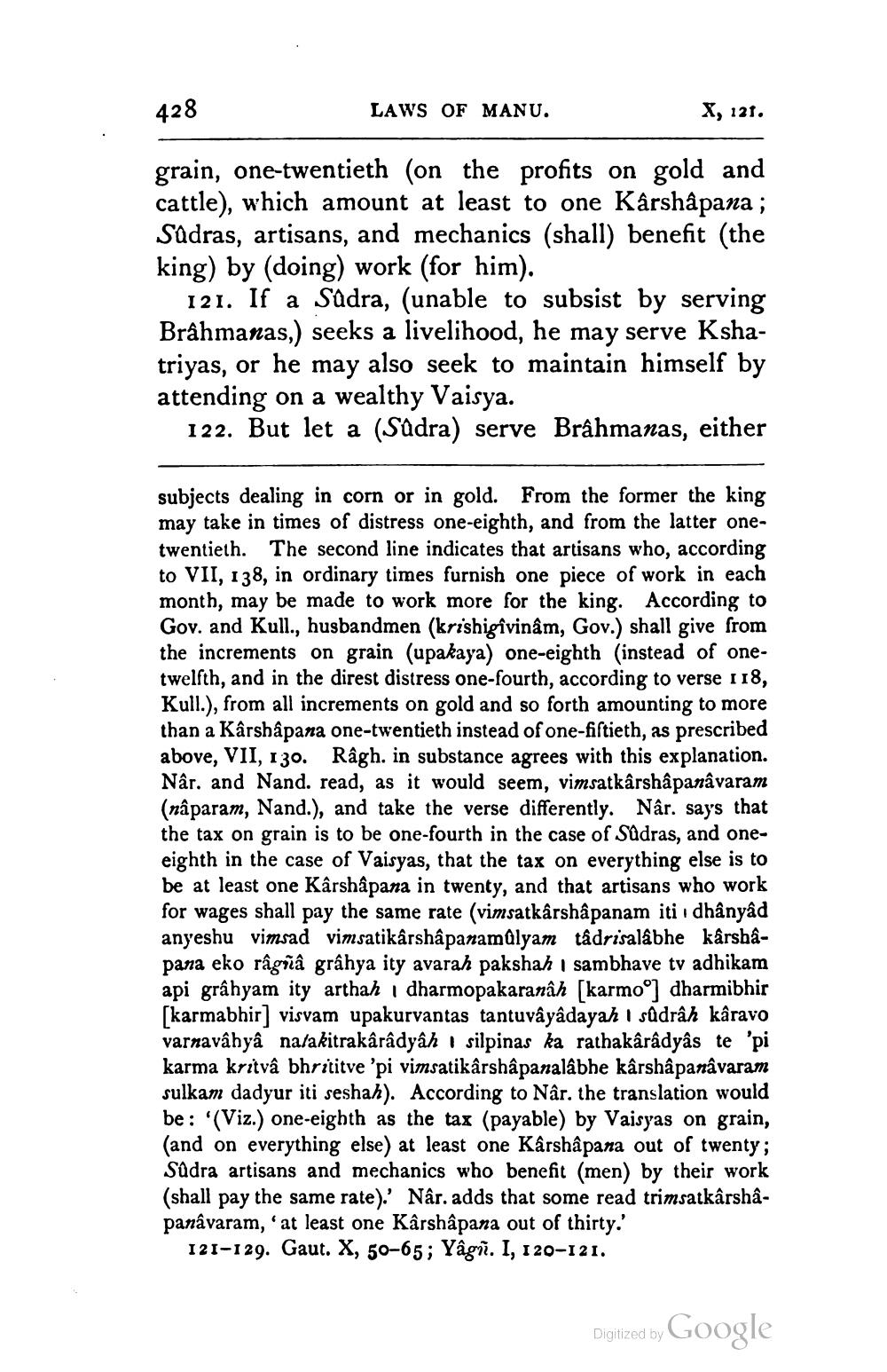________________
428
LAWS OF MANU.
X, 121.
grain, one-twentieth (on the profits on gold and cattle), which amount at least to one Kârshapana ; Sadras, artisans, and mechanics (shall) benefit (the king) by (doing) work (for him).
121. If a Sudra, (unable to subsist by serving Brahmanas,) seeks a livelihood, he may serve Kshatriyas, or he may also seek to maintain himself by attending on a wealthy Vaisya.
122. But let a (Sudra) serve Brâhmanas, either
subjects dealing in corn or in gold. From the former the king may take in times of distress one-eighth, and from the latter onetwentieth. The second line indicates that artisans who, according to VII, 138, in ordinary times furnish one piece of work in each month, may be made to work more for the king. According to Gov. and Kull., husbandmen (krishigivinâm, Gov.) shall give from the increments on grain (upakaya) one-eighth (instead of onetwelfth, and in the direst distress one-fourth, according to verse 118, Kull.), from all increments on gold and so forth amounting to more than a Kârshapana one-twentieth instead of one-fiftieth, as prescribed above, VII, 130. Râgh. in substance agrees with this explanation. Nâr. and Nand. read, as it would seem, vimsatkârshậpanâvaram (nâparam, Nand.), and take the verse differently. Nâr. says that the tax on grain is to be one-fourth in the case of Sudras, and oneeighth in the case of Vaisyas, that the tax on everything else is to be at least one Kârshapana in twenty, and that artisans who work for wages shall pay the same rate (vimsatkârshapanam iti i dhânyâd anyeshu vimsad vimsatikârshapanamalyam tâdrisalabhe karshapana eko râgñâ grâhya ity avarah pakshah | sambhave tv adhikam api grâhyam ity arthah dharmopakaranâh [karmo°] dharmibhir
karmabhir visvam upakurvantas tantuvâyâdayah I südrâh kâravo varnavahyâ natakitrakârâdyâh i silpinas ka rathakârâdyâs te 'pi karma kritvá bhrititve 'pi vimsatikârshapanalâbhe kârshậpanavaram sulkam dadyur iti seshah). According to Nâr, the translation would be: '(Viz.) one-eighth as the tax (payable) by Vaisyas on grain, (and on everything else) at least one Kârshâpana out of twenty; Sudra artisans and mechanics who benefit (men) by their work (shall pay the same rate).' Nâr. adds that some read trimsatkârshâpanavaram, at least one Kârshậpana out of thirty.'
121-129. Gaut. X, 50-65; Yåga. I, 120-121.
Digitized by Google




